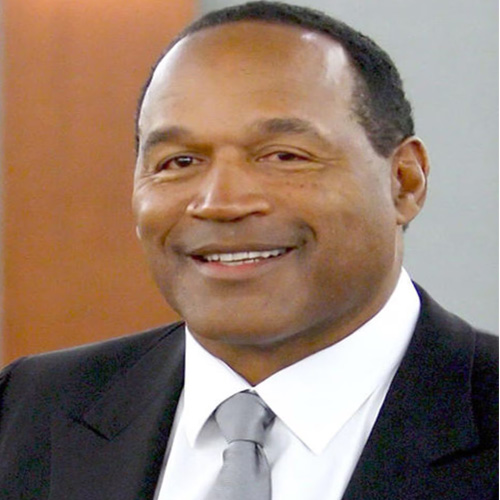
O.J. Simpson, the renowned football player whose life veered into a tumult of controversy, passed away on Wednesday, April 10 at the age of 76 after battling cancer in hospice care, as announced by his family on Wednesday. Simpson was born on July 9, 1947.
While Simpson’s athletic prowess earned him acclaim on the football field, during his time at the Los Angeles County Men’s Central Jail, Simpson reportedly found solace in golf books and magazines, which became his favored reading material. Despite starting relatively late in the game, at the age of 40, in 1987, Simpson became deeply engrossed in the sport of golf, quickly developing a passion for it. By the summer of 1994, accounts suggest that the former football star had honed his skills to a handicap of 12.4 and was indulging in the game five or six times weekly.
However, Simpson’s legacy is inextricably tied to the sensational murder trial that captivated the nation. Found not guilty in the highly publicized 1994 case involving the deaths of his ex-wife Nicole Brown Simpson and her friend Ron Goldman, Simpson’s trial splintered the country along racial lines and remains one of the most watched events in television history.
Before his entanglement in the trial, Simpson soared to fame as a standout football star, notably at the University of Southern California (USC) where his exceptional skills as a running back garnered national attention. His achievements culminated in winning the prestigious Heisman Trophy in 1968.
Transitioning to the NFL, Simpson initially faced challenges but blossomed under the guidance of coach Lou Saban, ultimately achieving legendary status. His record-breaking 1973 season, where he became the first player to rush for 2,000 yards in a single season, solidified his place in football history.
Beyond his athletic prowess, Simpson’s charm and charisma transcended sports, leading to numerous acting roles and commercial endorsements, notably the iconic Hertz rental car campaign that propelled him to broader fame. However, his image suffered a profound rupture with his implication in the tragic events surrounding the murders of Nicole Brown Simpson and Ron Goldman.
While acquitted of criminal charges, Simpson was later found liable for the deaths in a civil trial, a verdict that reverberated across the country and cemented his polarizing legacy. His later involvement in a separate criminal incident further tarnished his reputation, resulting in a prison sentence.
Despite his legal entanglements, Simpson’s story continued to captivate the public imagination, inspiring documentaries and television dramas that dissected his life and the broader cultural implications of his trials. With his passing, the complex legacy of O.J. Simpson invites further reflection on the intersection of fame, race, and justice in American society.


